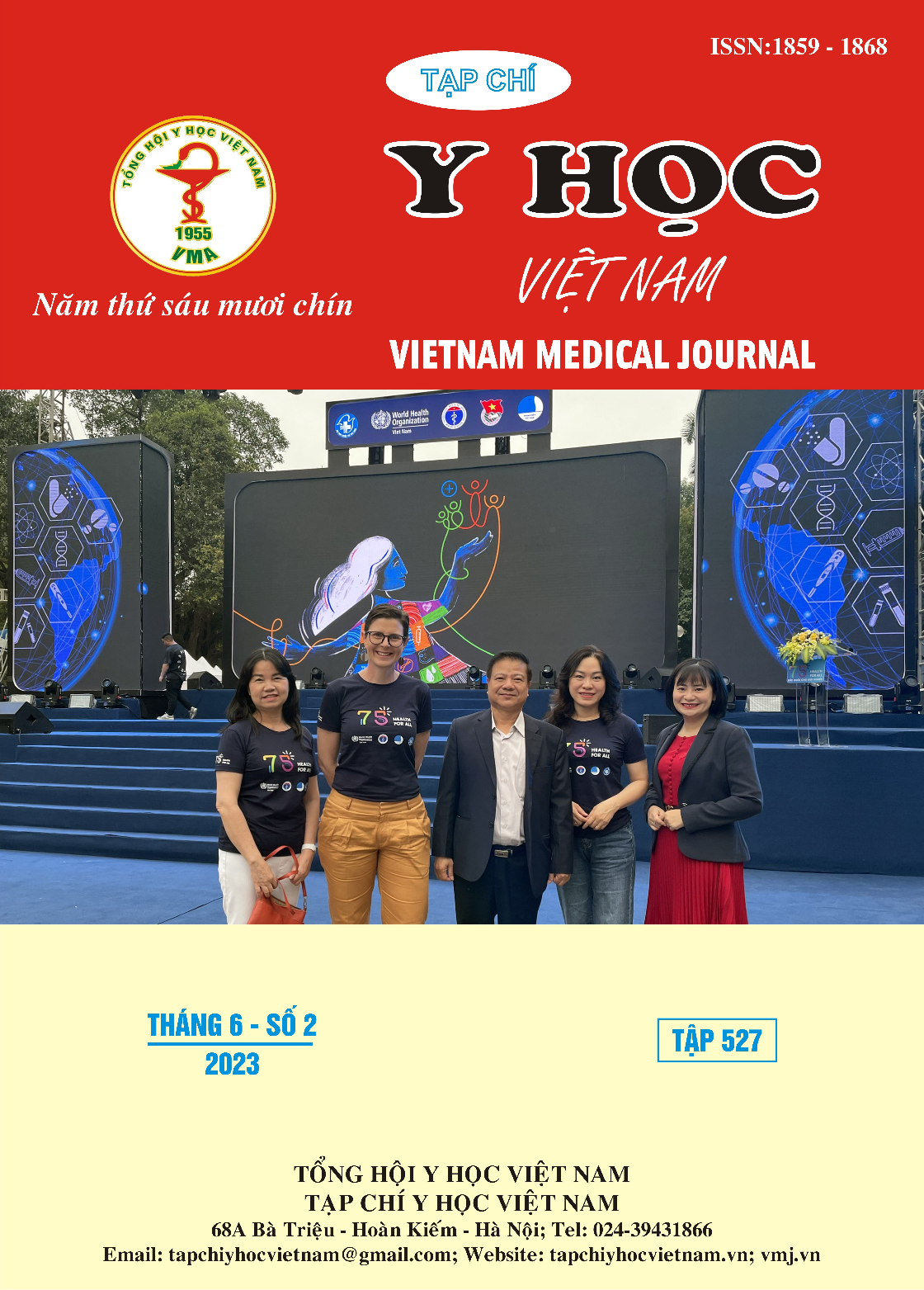SURVEY ON SKIN BIOMARKERS OF ATOPIC DERMATITIS PATIENTS USING A QUANTUM RESONANCE MAGNETIC ANALYZER AT THAI NGUYEN CENTRAL HOSPITAL
Main Article Content
Abstract
Background: Atopic dermatitis is a specific response of dermatitis to both endogenous and exogenous factors. Exogenous factors include: climate, environment, chemicals, ultraviolet light, cosmetics, food... Endogenous factors such as genetics, chronic digestive disorders, parasites irritation, metabolic disorders, endocrine dysfunction. It is a place that is a psychological and social burden for the patient and his/her family. The biological indicators on the skin of people with atopic dermatitis are different from those of normal people. Objective: Describe several skin biomarkers of patients with atopic dermatitis and determine the correlation between these biomarkers and clinic stages of the disease. Subjects and Methods: Case-control and cross-sectional descriptive studies were carried out on 30 patients with atopic dermatitis. Results: Quantitative analysis of several skin biomarkers on the skin of patients with atopic dermatitis by a quantum resonance magnetic analyzer showed that there was a disorder in some indexes (increase or decrease) compared to normal people. An increase of skin skin biomarkers including immune index of 63.3% (3.91 ± 1.62), free radicals of 53.3% (3.91 ± 1.83), skin moisture loss of 60.0% (4.94 ± 1.55), subcutaneous fat of 80.0% (25.42 ± 4.81), skin's horny layer 83.3% (2.30 ± 0.55), melanin 96.7% (0.60 ± 0.15). A decrease was detected with collagen of 90.0% (3.20 ± 0.89), skin elasticity of 50.9% (2.30 ± 0.69). The difference was statistically significant (with p<0.05,... and p<0.05). There was a positive correlation between the skin dilated capillary index and the clinical stages (corresponding to levels from mild,... to severe) in patients with atopic dermatitis (R = 0.44, p <0.05). Conclusions: There was an increase in skin biomarkers such as skin immunity, free radicals, skin moisture loss, subcutaneous fat, skin's horny layer, melanin and a decrease of collagen, skin elasticity. A positive correlation between the skin dilated capillary index and the clinical stages in patients with atopic dermatitis was showed.
Article Details
Keywords
Skin's horny layer, skin immunity, skin collagen, dilated capillary, atopic dermatitis
References
2. Rona M. Mackie (2002), Lâm sàng Da liễu - NXB Y học Hà Nội 2002, tr 74-83.(Tài liệu biên dịch, Bác sĩ Bích Thủy; Bác sĩ Hải Yến).
3. Naik S et al (2015). "Synergistic interaction of mononuclear phagocytes in the dentification of specific skin immune markers”, Nature 520 (7545): 104-8
4. Hội nghị Da liễu Châu Âu lần thứ 19 (EADV), “Điều trị Viêm da cơ địa: Không chỉ là trị ngứa da”. Tóm tắt những điểm thảo luận chính của Hội nghị chuyên đề, tr 21-23.
5. Beck LA et al (2014). Dupilumab treatment in adults with mod-erate-to-severe atopic dermatitis. N. Engl, J. Med; 371:130–9


